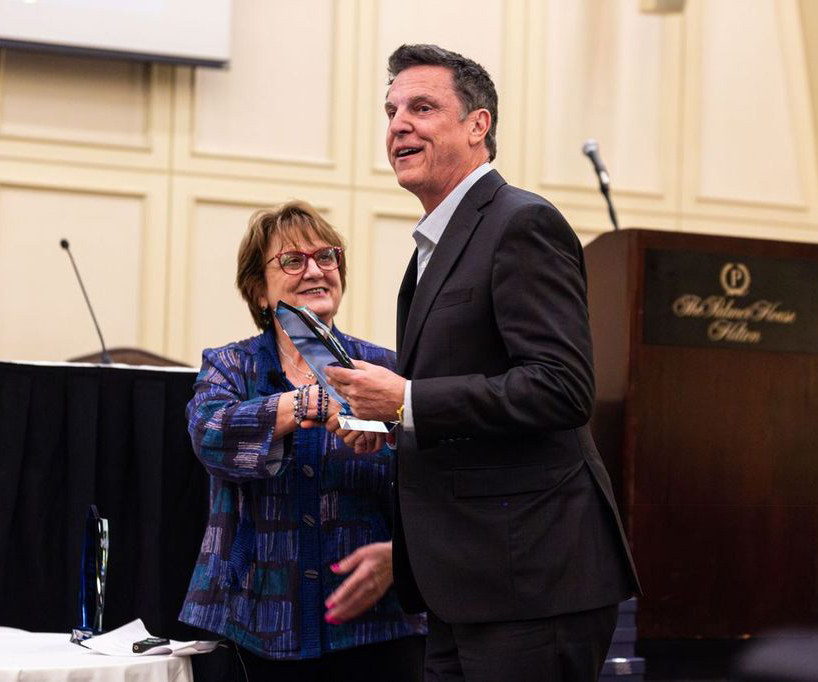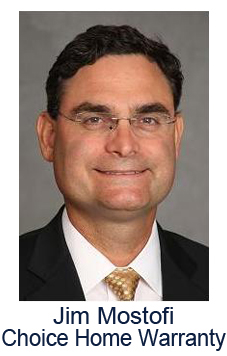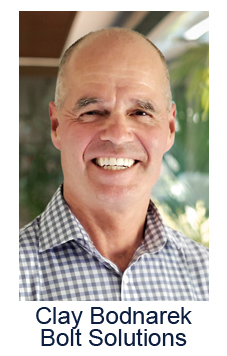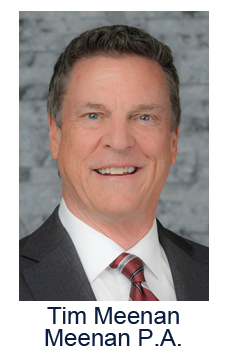Warranty Innovation Awards:
The first annual Warranty Innovation Awards were bestowed on five recipients at the Extended Warranty & Service Contract Innovations conference in Chicago this week. We caught up with the winners and learned their best practices for success in the warranty and service contract industry.
The 15th annual Extended Warranty & Service Contract Innovations conference was held from September 23rd to 25th, 2024, once again at the Palmer House Hilton in Chicago. It was a week filled with valuable conversations, intriguing presentations and panels, knowledge sharing, and networking, and a highlight of the year for our industry. And this year, to honor the milestone 15th anniversary of this conference, the first-ever Warranty Innovation Awards were presented and bestowed.
These awards are especially meaningful because they were peer-voted, so these companies and individuals were selected by fellow warranty professionals as shining examples of the excellence for which we strive in this industry.
There were five award categories, which recognized and showcased "innovation and excellence" in the warranty and service contract industry. Four of these awards recognized corporate entities, with the exception of Warranty Industry Champion, which was bestowed to an individual.
The five awards, and the winners, were:
- Innovative Product Design: Bolt Solutions & Choice Home Warranty
- Transformative Technology Innovation: Daimler Truck North America & Tavant
- Customer Experience Excellence: Apple Inc.
- Operational Performance & Administrative Excellence: Brunswick Corp.
- Warranty Industry Champion: Tim Meenan, Meenan P.A.

Roz Applebaum of the Strategic Solutions Network presents Tim Meenan of Meenan P.A. with his Warranty Industry Champion award, September 24, 2024
The Warranty Innovation Awards were the brainchild of Roz Applebaum, the Vice President of Conferences at the Strategic Solutions Network, and organizer of the Warranty Innovations conferences, who many in the industry have dubbed the "queen of warranty conferences." Over the course of more than a year, Applebaum first created a Brainstorming Committee to design the award categories and their descriptions. Once that work was complete, Applebaum formed the Awards Steering Committee, comprised of industry icons and veterans, to oversee the administration of the nomination and voting periods for the awards.
The Awards Steering Committee was comprised of: Roz Applebaum, VP of Conferences at Strategic Solutions Network; Eric Arnum, Publisher of Warranty Week; Travis Moore, General Counsel of the Service Contract Industry Council (SCIC); Gregory Myers, Executive Managing Director of Brown & Brown; Paul Swenson, Senior Vice President of Domestic & General; and Dan Tafel, Chief Development Officer of Ironwood Warranty Group.
First, there was a three-month open nomination period, where anyone in the warranty industry could suggest nominees for the awards categories, based on the descriptions that Applebaum and the Steering Committee had crafted. Then, the committee reviewed and selected the nominees, and oversaw the voting period, which lasted for about a month.
Applebaum's dedication to fairness, and her unbiased administration of these awards with the help of the Steering Committee, is a testament to her understanding of and respect for the warranty industry.

Warranty Innovation Awards at the Palmer House Hilton, September 24, 2024
We had the privilege of sitting down with some of the award winners to learn about the best practices and innovations that inspired their peers to select them as recipients of the first-ever Warranty Innovation Awards.
Innovative Product Design

The Innovative Product Design was awarded to Bolt Solutions and Choice Home Warranty, which have collaborated to sell both home warranty and mobile phone protection together using the Bolt platform. We spoke to Jim Mostofi, the CEO of Choice Home Warranty, and Clay Bodnarek, the Executive Vice President of Alternative Distribution at Bolt Solutions.
"Bolt tech is a leader in providing a platform for insurance agents and brokers to sell and distribute all sorts of insurance across the United States, and across the world," Mostofi said. "One of the things that the brokers and agents were looking for is the ability to sell additional products, beyond auto insurance, and homeowners' insurance, and other types of more traditional insurance, and using that platform to sell both home warranty and mobile handset protection is what brought this partnership together."
Bodnarek told us that this partnership was a case of "serendipitous timing." He continued, "Jim knew I had moved over to Bolt, and I knew Jim from working with him before, and knew that he was at Choice. So we started to explore ways that we could work together. It just seemed like the Venn diagram should overlap."
Mostofi expanded on that notion of fate bringing the two companies together for this collaboration. It wasn't just that Bodnarek and Mostofi were already familiar with each other professionally. Mostofi stated, "I knew that Bolt tech was a leader in providing access to insurance brokers all over the country, and I knew that Choice was a leader in providing home warranties to those homeowners. Bolt tech also had a complementary mobile handset protection product. And so, because of both of our respective core competencies, it made sense to put them together to bring home warranties and mobile phone products to brokers and agents."
Mostofi also remarked on why mobile phone protection specifically was so appealing to Choice Home Warranty and its consumers. "That's what consumers want. They're less concerned these days about protecting their big-screen TV. When you can purchase a brand-new big-screen TV for a few hundred dollars, it's not as much of a concern to consumers as it used to be. But what is a heightened concern now is protecting the mobile phone, because everyone is under contract, they want to return a phone in good working order at the end of that contract. It's just much more desirable than traditional consumer electronics coverage."

Bodnarek added, "In terms of the consumer value proposition, and what coverage they have, we really focused on delivering a relatively low-cost, but high-optics, high value, product. And as such, we did it as a service contract product that would cover accidental damage, liquid damage, malfunction, and breakdown, the core things that would typically happen to a device."
Bodnarek remarked that there's two components of this partnership that are especially innovative. "First, Jim teed up the innovation of being able to offer a home warranty, and broadened distribution. There's a lot of innovation around the whole Bolt platform that enables that, for thousands of agents across the country. Second, the mobile device product going into that home warranty is completely different than the traditional products that are out there. The innovation on that is there's a 100% digital claims journey." Furthermore, Bodnarek said, "Using that digital journey, there's no need to pre-register. You register at the time of making the claim, so whichever phone broke is the one that you're registering. That innovation makes it fit well inside of the overall journey that the Choice team can provide."
In addition, Mostofi said, "Home warranty is a new distribution channel for protecting consumers' products. The biggest differentiator between home warranty, and it could be other similar channels, is that instead of insuring a product, you're focused on insuring a customer, and the products that they own. So that's the innovation. That's why it's growing, is because of the changing distribution channels. People don't go to stores anymore, they buy online, they buy in all sorts of omni-distribution channels. It's easier now. It's shifting to, if you can protect the customer, you cover all of the distribution channels that they use, instead of trying to sell a warranty at each of the individual distribution channels."
Bodnarek concluded that it was the perfect time to introduce this partnership, since the definition of home has changed, to a certain degree, since COVID. "Where we have landed in this post-COVID era," Bodnarek said, "and with the amount of remote work that's taking place, is that 'home' is a little bit different now. So you'll see that there's innovation happening across the board, whether it's home warranty, homeowners' insurance, renters' insurance — there's an expectation from the consumer that they need somewhat different protection, because they're using their homes differently."
Transformative Technology Innovation
The Transformative Technology Innovation award went to the partnership between Tavant, a leading provider of service life-cycle management (SLM) solutions, and Daimler Truck North America, the largest heavy-duty truck manufacturer in North America. While Tavant and Daimler Truck have been working together for years, this newest collaboration, leveraging Tavant's generative artificial intelligence (GenAI) tools, along with its warranty and service life-cycle management platform, to enable Daimler Truck North America to enhance customer experience and dealer efficiency, represents a significant expansion.
Daimler Truck North America is leveraging Tavant's Service Lifecycle Management (SLM) solutions, which are a "comprehensive suite of modules, encompassing warranty registration, inventory management, claims management, and service analytics," according to a press release published by Tavant about the collaboration. Tavant's platform and SLM solutions allow Daimler Truck North America to "improve claim data, empower users to create ad-hoc reports, and leverage machine learning to predict standard repair processes."
This partnership utilizes generative artificial intelligence (GenAI) to allow dealers to "search for vehicle information using natural language." This includes a code prediction feature, which utilizes text and vehicle maintenance reporting standards (VMRS) code analysis to make accurate code analysis, helping dealers standardize coding and process warranty claims. Advanced reporting tools help make submitting required data for regulatory reporting easier.
The use of GenAI on the part of manufacturers and dealers to streamline warranty claims processing is transformative technology, and this partnership between Tavant and Daimler Truck North America is at the forefront of innovation.
Operational Performance & Administrative Excellence

The Operational Performance & Administrative Excellence award highlights companies that "streamlined their back-office processes to deliver excellent service, while maximizing return on investment," according to the Warranty Innovation Awards.
We spoke to Bijoy Jha, the Vice President of Financial Services & New Business Ventures, from award winner Brunswick Corp., a global leader in the marine recreation and technology industry.
Jha told us, "A service contract product is only as good as how good you are at paying the claims. Anybody can sell you a warranty or a service contract, but how do you behave when there are claims and you have to pay them?"
Jha said, what's important from a consumer perspective is, "how efficient we are at paying, and how quick we are. It's important to remember that behind every claim, there is a customer who is looking to get back on the water very quickly. That is where the efficiency, and how we do these things, is really important." He continued, "When they are at the dealer, they are frantic. They need to get on the boat. They bought a warranty. When it comes to us, if we can turn it around within the same day, and make the process seamless, that is the most important thing."
And it just so happens that emphasizing a seamless, efficient, and streamlined claims process has helped Brunswick save money in the long run. Jha said, "Maximizing margin by denying gray-area claims is not a good long-term strategy." He feels strongly that warranty is about building customer loyalty, and this ethos propels Brunswick forward.
In our March 2024 newsletter "Top 100 Warranty Providers of 2023," we observed that Brunswick Corp. reduced its warranty claims and accrual rates from 2022 to 2023. It's great to hear from the company that this reduction in warranty costs was a happy by-product of Brunswick's dedication to emphasizing the customer experience, and efficiency in processing claims as a driver of customer loyalty and happiness.
In summation, Jha said, "What we value the most in our operations is our desire to get our customers back on the water as soon as possible. We work with our dealers to process claims as efficiently as we can, such that our dealers can service our end-customers efficiently and effectively."
Warranty Industry Champion

Warranty Industry Champion is a bit like a lifetime achievement award for this industry. So who better to receive this award than Tim Meenan, Managing Shareholder at Meenan P.A.?
Tim Meenan has been a leader in the warranty and service contract industry for over thirty years. He co-founded three industry trade associations, the Service Contract Industry Council (SCIC), Guaranteed Asset Protection Alliance (GAPA), and Motor Vehicle Protection Products Association (MVPPA), conducts his own regulatory and legislative law practice, Meenan P.A., and has presented at a robust number of industry events and conferences over the years. He has made a huge impact in shaping the regulatory and legal landscape of the warranty and service contract industry for over three decades.
Meenan's first exposure to the world of warranty was in 1988, when he was Deputy Insurance Commissioner in his home state of Florida. "A local lawyer came in with a problem, and it was assigned to me to work on," Meenan said. "It was Circuit City. They owned an extended warranty company — or, here, they call them service warranty companies — and they didn't have enough money in their reserves, so I had to work through that problem."
After Meenan's tenure at the Florida Department of Insurance, Treasury, and State Fire Marshal, he went into private legal practice. Meenan said, "The very first call I got was from a gentleman in the motor vehicle service contract business named Steve Brooks, who was the head of the SCIC for 22 years. He passed away two years ago. He was like a big brother to me. He said to me, 'The regulator's got a lot of overreach here in Florida, let's do something about it.' The idea was the form a trade association. That one was called the Florida Service Agreement Association; it still exists."
A few years down the line, "We were having our second or third annual meeting," Meenan said, "and the owner of National Electronics Warranty, which later merged with Asurion, came to the conference and said, 'We need something just like this nationally.' So we started something called the Service Contract Industry Council [SCIC]. We started that with five companies in Las Vegas. At the time, it was only for consumer goods service contract companies. And then, somewhere in the mid- to late-90's, we said, let's open it to home warranty, and motor vehicle service agreement companies."
The SCIC has become a crucial and influential trade association in the warranty industry. "Along the way, in 30 years, we've probably amended the Florida law 25 times on behalf of the industry," Meenan stated. "I showed up on behalf of the SCIC at the NAIC [National Association of Insurance Commissioners] when they were writing the NAIC model act on service contracts. We provided input. I would say that substantially, most of the states that have adopted the model act, did it because the SCIC hired a local lobbyist to take it to the legislature and get it done." Nine states and Washington, D.C. have adopted the model act, and another 34 states plus Puerto Rico have passed related laws based on the model act.
Many veterans of this industry will recall the huge extended warranty fraud fiasco when the record and consumer electronics store Crazy Eddie went bankrupt in the late 1980's. Moments like that are the perfect case for the need for this SCIC in this industry.
"Crazy Eddie's did leave hundreds of thousands of worthless service contracts behind," Meenan said. "There was very little regulation, not in New York or anywhere, of the product. And so what we found is, with regulators reacting to something like Crazy Eddie's, and several did — in other cases, they would react to the fact that their wife was sold an auto service agreement — and they'd say, this is insurance." The power of the SCIC was "wrapping ourselves in an NAIC model act, and giving us the ability to stand before legislatures and say, this is more regulation. Which is good for consumers. But it's certainly not as much regulation as an insurance company would have, which was important."
Meenan noted that the difference between the fiasco of Crazy Eddie going bankrupt in 1989, and the much smoother situation of Circuit City going bankrupt in 2008, was the passing of the NAIC model act or similar in many states. "I've used this analogy before," Meenan said, "with Crazy Eddie's and Circuit City. Crazy Eddie's goes under, people are left holding the bag, no one got unearned premium refunds, no one got their claims paid after that date. Flash forward to Circuit City going under, they had an insurance-backed program, all the claims got paid, the insurer stepped in and had to actually take the claims. And no one got hurt. And that's the difference between the model act, and pre-model act. So we've come a long way."
"It all centers around an insolvency," Meenan continued, "because what happens is that a regulator in the state where the most people are getting hurt wants to overreach, and apply insurance laws, guaranteed funds, and things of that nature, to service contracts. So that's been the thing we've had to manage the most."
In addition to the SCIC, Meenan helped found two other trade associations, the Guaranteed Asset Protection Alliance (GAPA), in 2006, and the Motor Vehicle Protection Products Association, (MVPPA), in 2007.
Meenan helped get countless laws and regulations passed during his over thirty years at the helm of these three trade associations. "What people want in business is certainty," Meenan said, "and when we started, there was no certainty. Any insurance commissioner — and many did — could wake up and decide, they don't like your industry, and the definition of insurance — it sounds a lot like us. In fact, it can sound identical to us, and all of a sudden, they say, you need to be an insurance company, and they're issuing a cease and desist order. And we were able to stop a lot of that, but even when it would happen, we would parachute in, and educate them, and say, 'Give us this one session. We'll work with you and pass the model act. Don't issue cease and desists. Let us operate in your state.' That story played out numerous times."
"Now, it would be difficult — not impossible, but difficult — for a regulator to try to be an outlier," Meenan continued. "We've also been able to stop rate regulation of this industry, to allow innovation. Frankly, competition lowers rates, so it's a good thing. We've also not needed to be licensed insurance agents. It's difficult, to take a 200 hour course, to work at Best Buy, to say, 'Do you want to buy a service contract?' It's not practicable. Same thing at a car dealership, or a realtor's office." Overall, Meenan said, "It's a pretty strong industry, that has a great trajectory upward, in light of the professional staff we've got set up" at the three trade associations.
In 2022, Meenan stepped back from his role as General Counsel and Executive Director of the SCIC. Meenan said, "You know, it was probably time, for a lot of reasons, for me to step back. Most national trade associations aren't run by a lawyer out of Tallahassee. Most trade associations have professional, full-time staff. So I'm very proud of having helped form a management company, and hire Tom Keepers as Executive Director, Travis Moore as General Counsel, and the other staff there. They wake up every day, and spend the whole day focused on the industry."
Meenan is being modest, because he still spends his whole day focused on this industry as well, through his regulatory and legislative law practice, Meenan P.A. "Our firm still represents many companies in the industry," Meenan said. "We helped them get licensed on a national basis, we help them develop new products, we help them file the forms with regulators. A lot of programs that started as a small motor vehicle, or consumer goods, service contract company, using a big licensed insurer to back them with that contractual liability policy, have now grown to such an extent that they come to us and say, help us form our own insurance company, to issue ourselves a CLIP [Contractual Liability Insurance Policy], and how do we do that on a national basis? So, our firm has grown dramatically."
We asked Meenan to summarize his many years of experience in this industry. "When you're in third grade, and you ask, 'What do I want to be when I grow up?' Nobody says, I want to be the expert on service contracts and extended warranty," Meenan said, "but that's how it ended up, and it's been a blessing. Many of my friends come from this industry. My advice to the industry is, don't run from regulation, run towards balanced regulation. That's been our theme. I think it's worked pretty well. I think the trick is to stay focused on the task at hand, which is the laws, and the regulations, governing the industry, and make sure that they are solid, remain that way, and change. Back then, we didn't understand that we might be delivering service contracts by text, let alone email, so some of the laws don't allow that, and you have to keep up with that evolution. Who knows? We'll probably, eventually, just be able to beam it into someone's head, and we'll be changing the laws to be able to do that as well. Sticking to our knitting is what I would ask the industry to do. I would just say, I feel nothing but gratitude, and I'm looking forward to the next decade of helping companies grow in this business."







